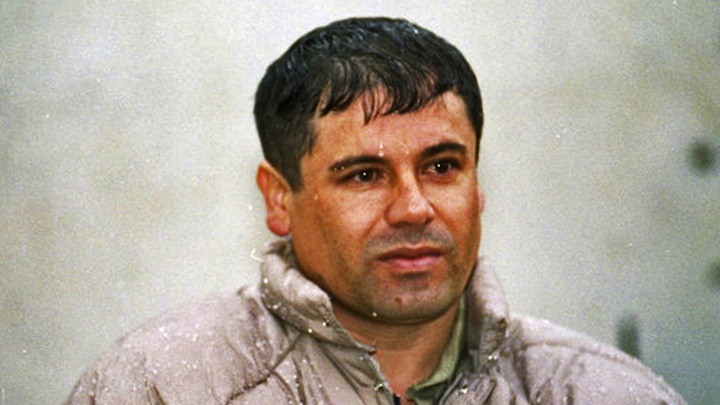
Stephen Simmons slowly walked up the steps to the scaffold in Library Park in Detroit. It was September 24, 1830, his last day on Earth, and he looked out at the festive crowd of 2,000 celebrating spectators.
Men had brought their wives and children, there were refreshment booths, and a military band played a lively tune.
A local tavern owner, Simmons was a pleasant enough guy while he was sober but a demon when he was drunk. One night a month earlier, in a drunken rage, he had strangled his wife Livana when she refused to drink with him.
The crowd quieted as he stepped up to the gallows. In his last words he made a heartfelt confession about his crime and the evils of liquor.
The holiday mood evaporated as he sang a Christian hymn. Then the noose was placed around his neck and he dropped to his death. Public enthusiasm for the death penalty plummeted in the Michigan territory.
Seven years later, across the Detroit River in Windsor, Ontario, Patrick Fitzpatrick was hanged for murder despite his protests of innocence. A few months later, another man made a deathbed confession that he, not Fitzpatrick, had committed the murder.
When the Michigan legislature considered the issue of capital punishment in 1846, these two factors—the public’s moral repugnance of the death penalty and the fear of executing an innocent man—convinced them to abolish capital punishment for murder. The state was the first English-speaking government in the world to abolish the death penalty.
The Simmons hanging in Michigan had defined the capital punishment debate not only in the state but, to some extent, for the rest of the country, in moral and religious terms.
Was the death penalty morally justified as a just retribution for the taking of a life? Did the Bible authorize it or forbid it as a penalty option in the most heinous cases?
Michigan and a handful of states rejected the ultimate punishment, but the overwhelming majority of states embraced the death penalty as morally justified and ordained by God as “an eye of an eye.”
There were other great historical causes in 19th early 20th Century America that were also vigorously debated primarily in terms of morality—temperance, women’s suffrage, and the abolition of slavery. While both sides of each of these issues raged on for decades without a resolution, ultimately it was the pragmatism of economics and politics which settled them, not so much morality. For a growing majority, the country’s future simply could not proceed with unenforceable and corrupting Prohibition and the marginalization of large parts of the population.
Similarly, the future of the death penalty is being decided in terms of economics—taxpayer dollars and cents. Slowly, incrementally, the death penalty is dying in America. Not because most people believe that the worst offenders do not deserve the most severe sanction. Nor has the debate over the efficacy of the penalty produced anything definitive. Studies on both sides of the issue claim to prove that the death penalty either does or does not deter others from committing the worst forms of murder.
Not only are these previously debate-defining terms not coming to any resolution, they are slowly being moved to the role of afterthought. Few people even talk about deterrence and moral justification any more. Instead what little debate that is occurring focuses on questions like: can local prosecutors’ offices afford death penalty litigation? Can the death penalty be administered in a humane and botch-free manner? In a post-DNA world can we guarantee that no innocent person will be executed?
More than any other factor, the future of the death penalty is being determined by the growing sentiment that we simply cannot afford it. Even though a majority of Americans probably continue to believe that capital punishment is justified for the mass murderers we hear about on the news with disturbing regularity, they are no longer willing to pay the increasing price. Just as likely, pragmatic considerations in an era of economic insecurity affect those moral decisions on whether as a society we need capital punishment.
Next week this column will explore this downward trend in the use of the death penalty and discuss one ex-prosecutor’s view on where it is heading—the death of the death penalty in America.







Saving Costs with The Death Penalty
Dudley Sharp
Could all jurisdictions save money by using the death penalty, as opposed to life without parole?
Of course.
The Virginia Example
Virginia executes within 7.1 years of sentencing, on average, and has executed 72% of those so sentenced (108 out of 149), within the modern death penalty era, post Gregg v Georgia (1976) (1).
All states could do that, or similar, and save money over LWOP.
Texas
Contrary to consistent urban legend, an academic review, by a neutral academic, found that the verifiable costs in the oft quoted “Texas cost study” actually found the death penalty was cheaper than a life sentence (2).
I have told the Dallas Morning News, for many years, to stop using their totally inaccurate cost review. They still use it. They found that it costs $2.3 million per average death penalty case (for 5 cases), more than 3 times more expensive than a $750,000 life sentence. (C. Hoppe, “Executions Cost Texas Millions,” The Dallas Morning News, March 8, 1992, 1A)
Problem is that they looked at the pre trial, trial, incarceration and appellate costs of the death penalty, but only the incarceration costs of life WITH PAROLE ELIGIBILITY.
That study looked a 5 death row cases. Texas has had over 1000 since 1973.
contd
contd 1
North Carolina
Contrary to consistent misinformation, the study actually finds that LWOP is more expensive that the death penalty (3).
A perfect example of how bad things are in academia. This cost review has been quoted extensively, in academia, media and in anti death penalty literature. Every time I have seen it cited, it has been, blatantly, misleading and in error. Not once have I found any correction from the authors.
FLORIDA
What happens when an average of 29 years of appeals turns into 10 years for appeals?
Florida Adjusted Total Costs
Death penalty cases $500,000
Life without parole cases $1,953, 000
http(COLON)//prodpinnc.blogspot(DOT)com/2012/12/blog-post.html
OTHER STATES
DEATH PENALTY COSTS: COLORADO
Cost, Deception & the Death Penalty: The Colorado Experience
http(COLON)//prodpinnc.blogspot(DOT)com/2009/05/cost-deception-death-penalty-colorado.html
Death Penalty Costs: California
http(COLON)//prodpinnc.blogspot(DOT)com/2012/08/death-penalty-costs-california.html
Death Penalty Costs: Maryland
http(COLON)//prodpinnc.blogspot(DOT)com/2012/05/maryland-cost-study-problems-urban.html
contd
contd 2
INCREDIBLE COSTS: LIFE WITHOUT PAROLE
http(COLON)//prodpinnc.blogspot(DOT)com/2009/03/incredible-costs-life-without-parole.html
Kansas
Yes, the “study” found that death penalty cases cost 70%, or about $500,000 more, per median case cost than for the equivalent non death penalty murder case (4).
However, the foundation was this: ” . . .there was nothing we could look at to verify the accuracy of any of the data assembled for this report.” (page 2) (4).
“Actual cost figures for death penalty and non death penalty cases in Kansas don’t exist.” (page 10) (4).
On pages 29 and 31 the study discussed methods of saving money.
New Mexico & New Jersey
For anyone that paid any attention to New Jersey or New Mexico, you know that neither cost nor the truth played a role in either states abandonment of the death penalty.
New Mexico
New Mexico wrongly used the North Carolina cost study, above, to determine that costs in their state may be similar. Obviously, an exercise in inaccuracy. New Mexico didn’t realize that cost study actually found life without parole to be more expensive (5). There was no effort in New Mexico to fact check.
New Jersey
New Jersey conceded they could not, accurately, evaluate costs, as reviewed, here:
“DEAD WRONG: NJ Death Penalty Study Commission”, Dudley Sharp, 2007,
http(COLON)//homicidesurvivors(DOT)com/2010/04/11/dead-wrong-nj-death-penalty-study-commission.aspx
contd
contd 3
FOOTNOTES
(1) Execution rate in Va. prompts dispute / Law defended, but some wonder if errors are made
FRANK GREEN, Richmond Post-Dispatch, December 4, 2011 Page: A1 Section: News Edition: Final
The revised link is not accessible, by me or the reporter, whose email is fgreen(AT)timesdispatch(DOT)com
(2) p154-156 http(COLON)//books.google(DOT)com/books?id=IQJtCjhdGeUC&pg=PA154&lpg=PA154&ots=Mtji7SSu0v&dq=cost+%22death+penalty%22+Dallas+morning+news%22&ie=ISO-8859-1&output=html
(3) “Duke (North Carolina) Death Penalty Cost Study: Let’s be honest”
http(COLON)//prodpinnc.blogspot(DOT)com/2009/06/duke-north-carolina-death-penalty-cost.html
(4) “Performance Office Report: Costs Incurred for Death penalty Cases”, A K-Goal Audit of the Department of Corrections, by the Legislative Division of Post Audit – A Report to the Legislative Post Audit Committee, December 2003
(5) “Rebuttal to Governor Richardson – Repeal of the Death Penalty in New Mexico”
http(COLON)//homicidesurvivors(DOT)com/2009/03/19/rebuttal-to-governor-richardson–repeal-of-the-death-penalty-in-new-mexico.aspx
“Why did Gov. Richardson repeal the death penalty? His legacy”
http(COLON)//homicidesurvivors(DOT)com/2009/03/31/why-did-gov-richardson-repeal-the-death-penalty-his-legacy.aspx*post@state.co.uspost@state.co.uspost@state.co.us